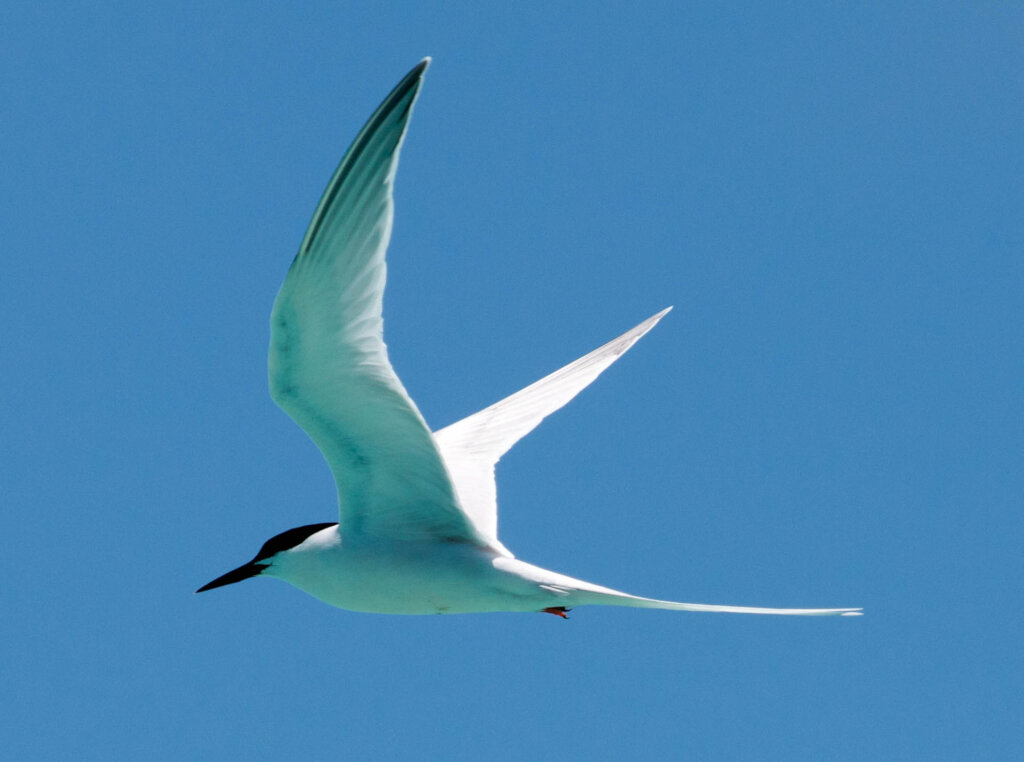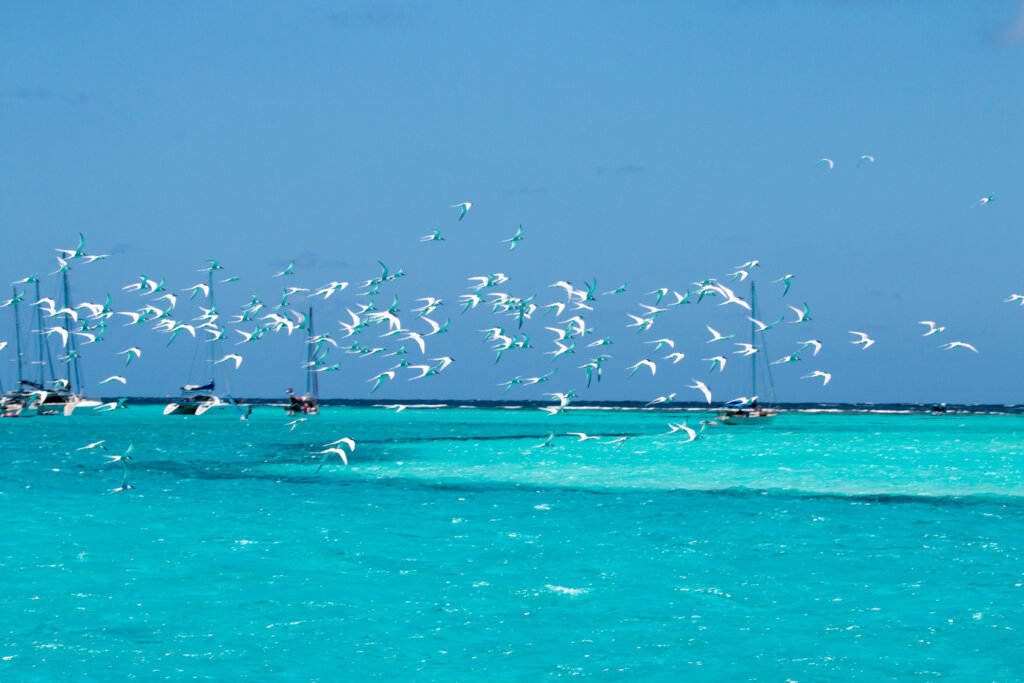By Natalia Collier | Program Director
Thanks to your support, our citizen scientists kept an eye on seabird nesting areas during the peak breeding season, with most chicks fledging by July. Now there are fewer nests, likely an adaptation for avoiding the dangers of hurricane season, which ends in November, although there are some species that can be found nesting year-round.
We were happy to get reports of nesting Roseate Terns from surveyors. These small, white seabirds have bright red legs and feet, creating a striking contrast with their white body and black cap. They are called Roseate because of the pinkish hue of their breast. They mostly eat by diving into the water after small fish.
While this species is considered Endangered in the United States, its status is unclear in the Caribbean. Because they nests in small groups, scattered among smaller islands where there are usually less predators, it's dfficult to get a regional population estimate.
Thanks to your support, our volunteers continue to monitor threatened species like the Roseate Tern. Fortunately, there were no reports of egg harvesting, which can be a problem for tern species, and no fires. We'd like to think that our message is continuing to spread that seabirds are important for the health of our oceans and have cultural value, like showing fisherfolk where to find schools of fish. While threats to seabirds remain, it is encouraging to see the resilience of birds like the Roseate Tern.
Links:
Project reports on GlobalGiving are posted directly to globalgiving.org by Project Leaders as they are completed, generally every 3-4 months. To protect the integrity of these documents, GlobalGiving does not alter them; therefore you may find some language or formatting issues.
If you donate to this project or have donated to this project, you can recieve an email when this project posts a report. You can also subscribe for reports without donating.
Support this important cause by creating a personalized fundraising page.
Start a Fundraiser
